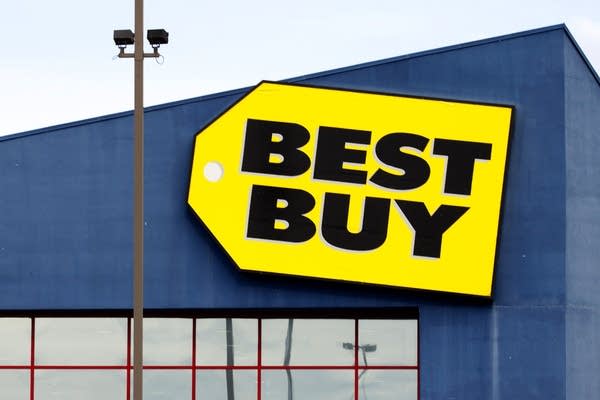Senate poised to pass online sales tax bill
Go Deeper.
Create an account or log in to save stories.
Like this?
Thanks for liking this story! We have added it to a list of your favorite stories.

The U.S. Senate is debating a bill that would allow states to collect sales taxes from online retailers, a change designed to deliver billions of dollars of lost tax revenues.
Online retailers don't have to collect state sales taxes if they do not have physical location in the state. As a result, state governments missed out on $23 billion in potential taxes last year. The exemption cost Minnesota an estimated $450 million in 2012.
Some anti-tax advocates say the legislation would amount to a power grab for states that already have plenty of revenue. It would almost certainly make purchases at online retailers like Amazon.com a little more expensive.
But traditional retailers, including Minnesota-based Target and Best Buy, are cheering the legislation and both of Minnesota's Democratic senators back the bill, which has bipartisan support.
Turn Up Your Support
MPR News helps you turn down the noise and build shared understanding. Turn up your support for this public resource and keep trusted journalism accessible to all.
"I have seen with my own eyes people go into Best Buy, spend half an hour with a very eager salesperson who's helping them in any way they can, and they look at dozens of TVs and then go back outside the store and then buy it on the Internet," U.S. Amy Klobuchar said on the Senate floor last week. "That's not how things should work."
Her Democratic colleague echoed her concerns. When people shop online, either for the convenience or to avoid sales tax, it creates a problem for states, U.S. Sen. Al Franken said in a speech supporting the bill.

"State and local budgets have been hit really hard since the great recession," Franken said.
In Minnesota, where state lawmakers are considering a variety of tax hikes and fee increases, a new stream of hundreds of millions in tax dollars from online sales would limit the need for such measures.
The bill in the U.S. Senate, known as the Marketplace Fairness Act, easily cleared several procedural hurdles earlier this week with strong bipartisan votes.
In part, Franken said, that's because many Republican governors have given their backing to the legislation.
"It brings much needed revenues to their states without creating a new tax. There's no new tax created here," he said.
The legislation requires online retailers to collect the appropriate sales tax wherever the goods are being shipped. It exempts small retailers. Any business that sells less than $1 million in goods to out-of-state customers won't have to collect state sales taxes.
It also directs states to provide companies with software to calculate those taxes.
A decade ago, that software might have been difficult for online retailers to use, said Max Behlke, manager of state and federal relations for the National Conference of State Legislatures. Technological advances have made the process simpler, and faster, he said.
"You plug in the address which the product is going to be shipped to anyway, and it instantly calculates the sales tax that's owed," Behlke said.
This bill has long been a goal of big retailers like Target and Best Buy, who have fretted that online retailers have an unfair price advantage because of the tax issue.
Even Amazon has decided to back the legislation -- in part because the company's business strategy now includes placing warehouses close to its customers all over the country.
But some anti-tax Republicans and lawmakers from states without sales taxes are putting up a last-ditch fight. U.S. Sen Kelly Ayotte, R-New Hampshire, called the proposal "an administrative nightmare."
"States are in a position where they want to use this as a cash grab, to make other states and online businesses do their work of tax collecting for them instead of doing it themselves," she said in a Senate speech.
While it appears that Ayotte and her allies may lose the battle in the Senate, the bill's outlook in the Republican-controlled House is less clear. Influential conservative groups such as Americans for Tax Reform and the Heritage Foundation are trying to rally GOP members against the bill.
In the long run, however, online sales taxes are inevitable, said Behlke, of the National Conference of State Legislatures. He said Americans are used to buying everything from diapers to TVs online.
"If someone actually tells you the Internet is going to go away because online retailers are going to have to collect taxes the same way brick-and-mortar stores are in our communities, I would just find that quite laughable," Behlke said.
A companion measure with some bipartisan support has been introduced in the House, where Democratic U.S. Reps. Betty McCollum and Keith Ellison of Minnesota are co-sponsors. But House leaders haven't promised a vote on the bill and are waiting to see what the Senate does.
Klobuchar notes that every member of Congress has brick-and-mortar retailers in their district, and lawmakers in the House are sure to hear from them if the Senate passes its bill.
"They are going to hear from small businesses all over their districts," she said. "They're going to hear from big businesses and they're going to hear from their local towns and state governments."



